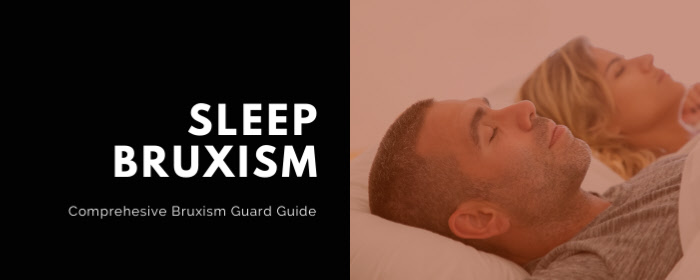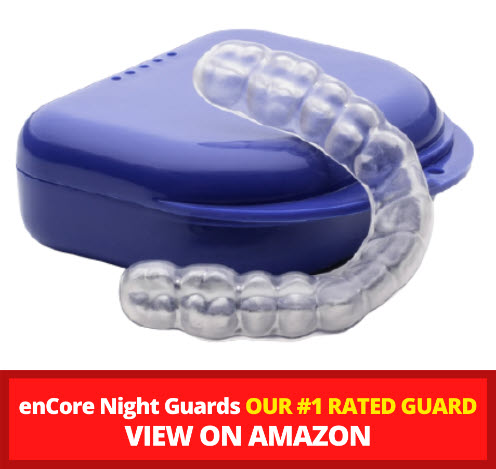
Bruxism, also known as teeth grinding and clenching is not only painful. It’s also harmful to your teeth. It can lead to a variety of disorders and problems in the future. For many people, they may not realize that they have a problem though. Sleep bruxism is a common problem. People who clench and grind while sleeping make it hard to figure out the source of their complaints.
It’s important to take note of the most common signs and symptoms. If you start to notice yourself having these symptoms, then you may need to seek out your dentist for help resolving this problem. If you’re not sure of the most common symptoms, these are the ones to watch for.
Note if You Grind Your Teeth at Night
If you have a partner that you sleep with, this person may notice your problem before you do. This is usually meant with good intentions so it’s important to take them seriously. You may also want to take note if they tell you that you choke, snore, or grunt in your sleep. While not related to bruxism, this may be a sign of sleep apnea and both conditions are related. Sleep apnea is a serious condition that should be addressed with your doctor.
Obstructive sleep apnea occurs when your airway collapses while you’re sleeping, When you unconsciously are trying to hold your throat open, the body is going to clench your jaw which helps you with breathing but then may damage your teeth and jaw in addition to stressing the muscles in the jaw (1).
Waking With Jaw and Tooth Pain
A common sign that you’re experiencing sleep bruxism is when you wake up with sore teeth and a sore jaw. The clenching of your jaw during the night is going to put pressure on your teeth. This will cause them to be tender and sore for a period of time, even after you’re not putting pressure on them.
Jaw pain when your teeth are clenching often feels like a dull ache or may even be a sharp pain. Most of the time, people experiencing pain in their jaw muscles. This feeling of achiness and tenderness may last throughout the day. The jaw muscles are large and extend through the entire facial area. This will extend up to your temples so you may feel generalized pain in your face. While often confused for sinus pain, pay attention to your symptoms as this may be a sign of bruxism.
Waking with a Gritty Mouth
If you ever wake up and feel like you have something sandy or gritty in your mouth, then you should take note. Tooth damage may be causing you to break off small pieces of enamel. The teeth grinding together can cause this which will then cause you to feel as though you have sand in your mouth.
The mouth is a very sensitive area so you probably will be aware when you experience this. One of the biggest dangers that people experience is ignoring this sensation. Even a small amount of grit in your mouth should be taken seriously so don’t ignore these symptoms when they occur.
Waking with a Headache, Neck Ache, or Ear Problems
When you clench an grind with your jaw, you’re not just affecting this area. You’re also going to experience problems in other related systems. This means that you’re more likely to wake up with pain in other parts of your body. While you wouldn’t experience pain in distal systems such as your arms and your legs, you should expect to have pain in other areas of the body. A headache can be caused by tension in the jaw since the jaw muscles extend up to this area. It may also be tension in the muscles that work the jaw.
Knowing that a headache first thing in the morning is a common symptom of sleep apnea, it’s important to take this symptom seriously and track down the true cause.
The muscles in the neck are also working with the jaw muscles. They will experience stress and you may notice that you have neck pain when you also have bruxism.
When it comes to the relationship between the jaw and the ear, this one is more complicated. Some people who have bruxism also report that they have an ear ache. However, this is more likely due to the jaw joint since both are located close to each other. You may also experience ear-related problems such as tinnitus or vertigo. People may experience these symptoms when they develop TMJ and many experience them when they grind and clench their teeth overnight.
Finding Symptom Relief
While these are the most common symptoms that people will experience, they’re certainly not the only one. Any unexplained aches and pains in your head and neck may be a sign of sleep bruxism. If you start to notice these areas being a problem, it’s usually best to talk to your dentist. This medical professional can complete a full evaluation and recommend an effective treatment option.
The good news is that there are many solutions for sleep bruxism. When your dentist performs an evaluation, he or she will determine what’s causing you to clench and grind your teeth overnight. It will also help to point you in the direction of the appropriate treatment. In some cases, your dentist may recommend neuromuscular dentistry to offer effective solutions.
The goal of determining if you have sleep bruxism is to ultimately find a solution. Since this problem can lead to wear and tear to your teeth in addition to a number of other problems, it’s best to take note of your symptoms and find a solution promptly. Schedule a visit with your dentist and discuss your current symptoms. After having an evaluation, you’ll have a better idea of the recommended solution and be able to make an informed choice. Most people are able to resolve their sleep bruxism and find a relief from symptoms that may be uncomfortable and unpleasant.


